Curt and Katie chat with Linda Thai, LMSW, ERYT-200—a trauma therapist and educator specializing in brain- and body-based modalities for complex developmental trauma. We explore practical, culturally aware somatic tools therapists can use right away, how to help clients (and ourselves) expand capacity for rest not just activation, and ways to integrate bottom-up work ethically in treatment for trauma survivors and adult children of refugees and immigrants.
Listen Now →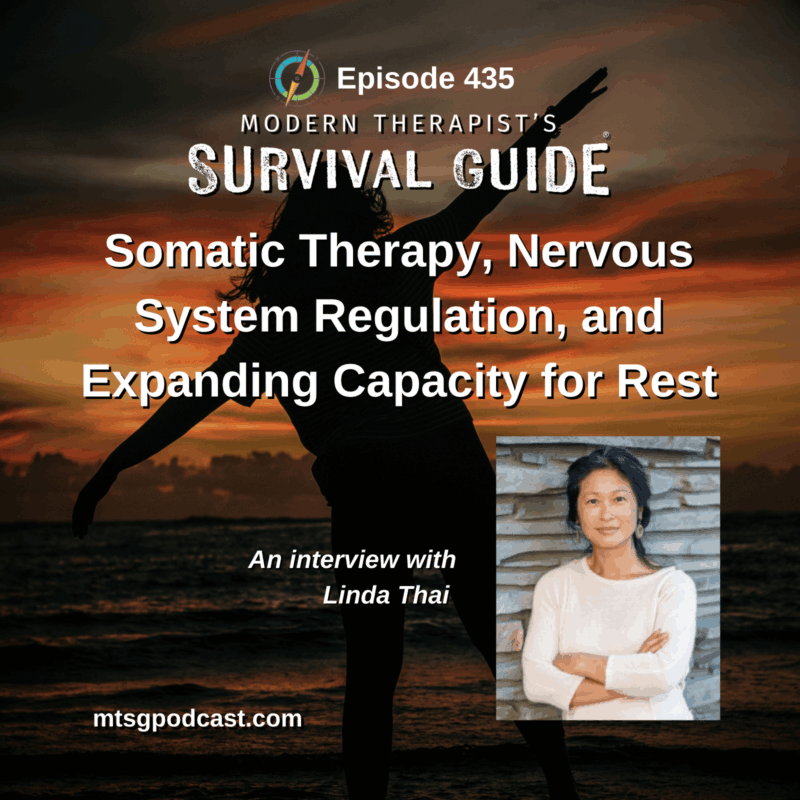
Preparing for the Ten Percent Happier podcast with Dan Harris took me back to the days when I was teaching stress management and reduction classes.
I share about the neurophysiology of stress-distress-trauma-burnout, and offer practical skills to help people to stay afloat.
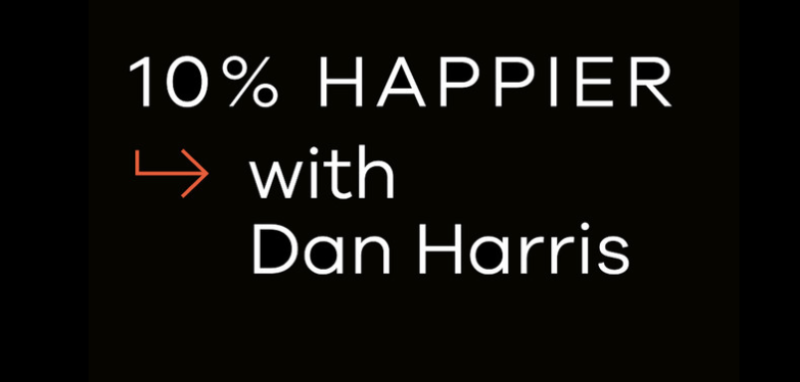
An uncommon story of traveling off the beaten path, finding awareness, peace and serenity along the way. From a refugee boat in Vietnam to a log cabin in Alaska, Linda’s story is about survival, healing, and creating a home on her own terms
Listen now →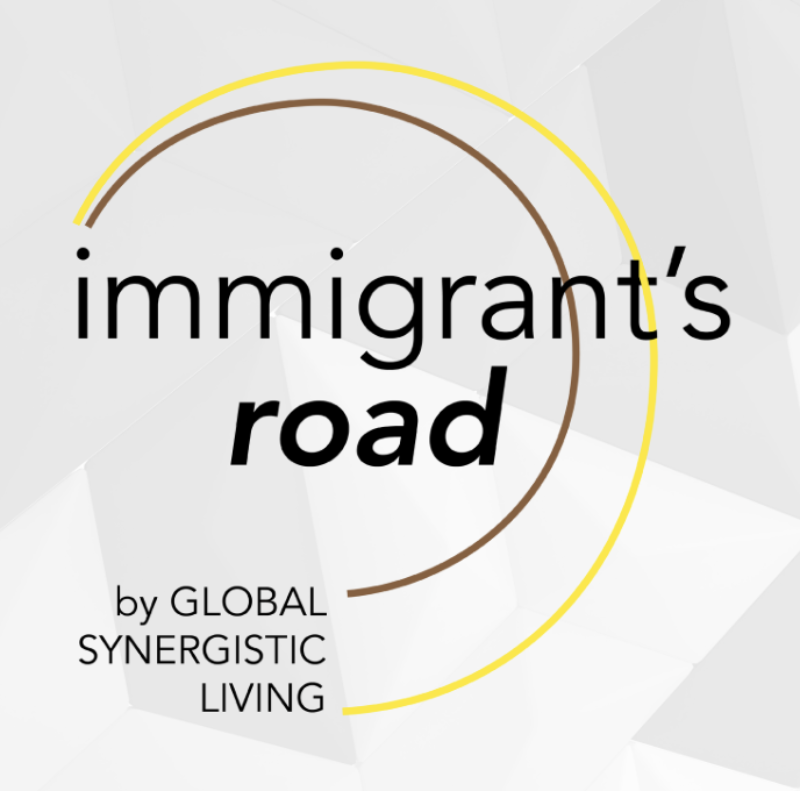
Filmed as part of the Somatic Approaches in Therapy Summit, discover how trauma shapes our nervous system and learn practical, compassionate tools for regulation in this engaging presentation that blends clinical insight, embodied exercises, and cultural context to illuminate the pathways from survival response to healing.
Created in collaboration with The Awake Network and the Center for Mindful Self-Compassion, this video is designed for therapists, clinicians, and anyone interested in trauma-informed care, but its accessible approach welcomes all viewers.
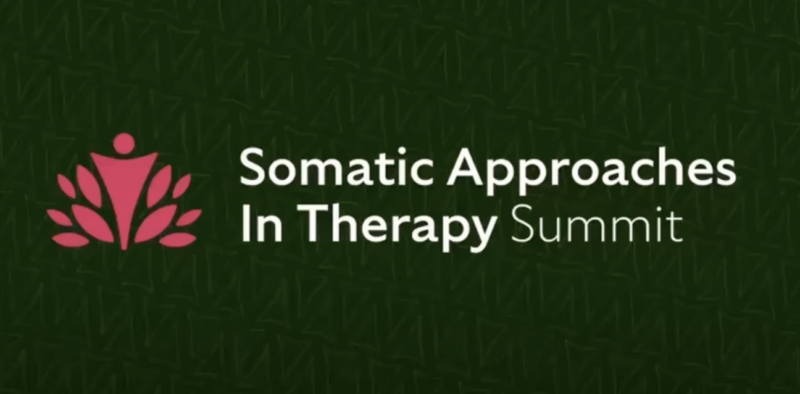
Hosted by SAND (Science and Non Duality), please join me and writer, Jungwon Kim, for an in-depth conversation on intergenerational trauma, historical grief, and healing in community. Together, we will explore psychological, spiritual, and communal reverberations of historical violence, framed within the context of U.S. wars in Korea and Vietnam, yet deeply relevant to other conflicts, past and present.
The complex dynamics of remembering and forgetting—and how they play out across families and communities fragmented by political and militarized violence - is not to be missed.
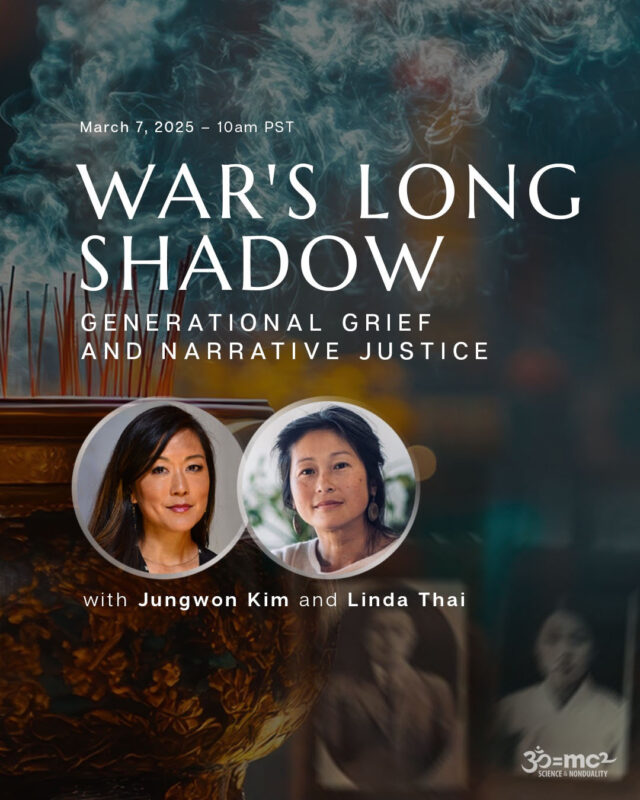
Says Niall: I’ve interviewed many fascinating individuals in the past seven years of running The Weekend University, but there was something different about Linda. It might have something to do with her getting off the grid and living in the wilderness in Alaska, or perhaps it's the eclectic self-education she has immersed herself in. Whatever it is, Linda brings to the table a unique and holistic perspective on attachment, that I think is years ahead of the conventional wisdom.
Listen Now →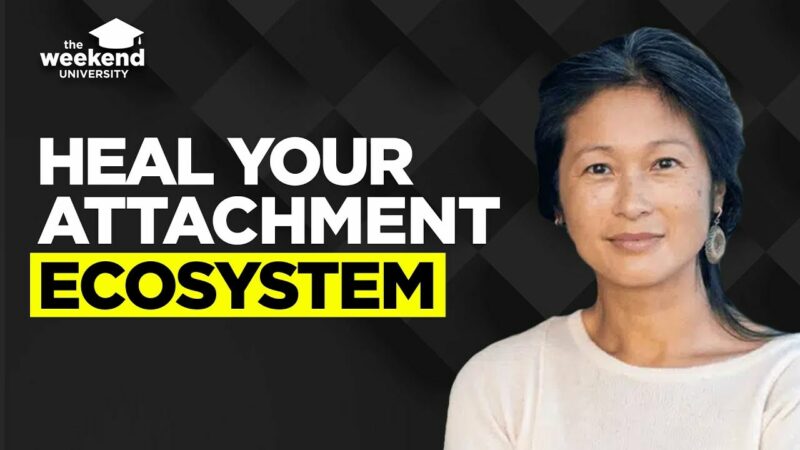
Linda Thai joined the Colleague Down the Hall podcast to explore how trauma symptoms often overlap with traits of ADHD and autism, stressing the need for accurate differentiation and personalized treatment plans. The discussion highlights the significance of continuous assessment, a multidisciplinary approach, and the role of peer consultation. They also discussed promoting self-empowerment, reducing stigma, and integrating diverse therapeutic perspectives to enhance client outcomes. Listen in to hear this discussion about unraveling complexities and offering insights for effective therapeutic practices.
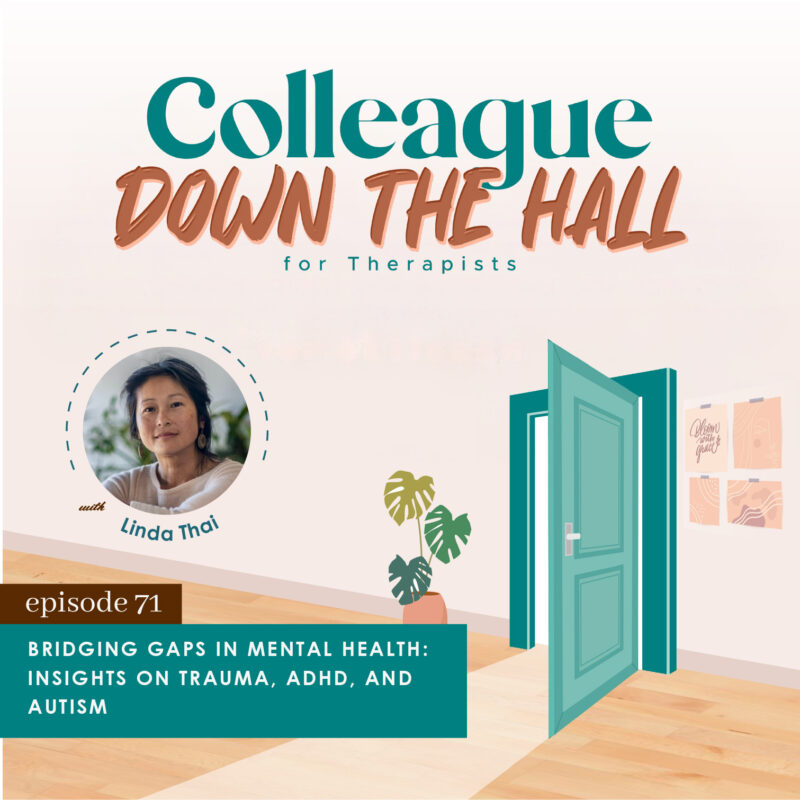
Curt and Katie interview Linda Thai on her experiences as a conference attendee, keynote speaker, and educator. We discussed the need for more accessible, community-centric, and culturally humble education as well as how to more effectively share knowledge. The limitations of traditional educational models (which Linda calls the Continuing Education Industrial Complex) are discussed as well as how conferences can be exclusive or elitist. We explore how to best access continuing education and take advantage of all types of educational opportunities.
Listen Now →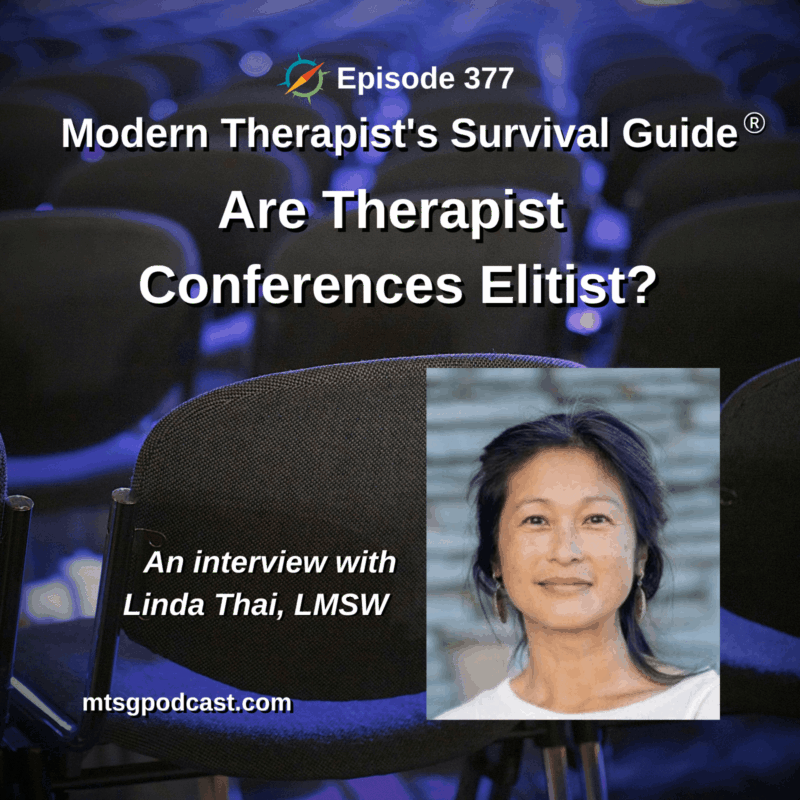
Rethinking Attachment: Towards Relational Wholeness
What would it mean to reconceptualize secure attachment more holistically? How might embracing the relational richness of our multi-layered lives help transform isolation into belonging?
These are some of the questions we will explore with Linda Thai, mental health clinician, storyteller, and educator.
You can listen to the audio here. To watch the YouTube video, please click the button below.
Listen Now →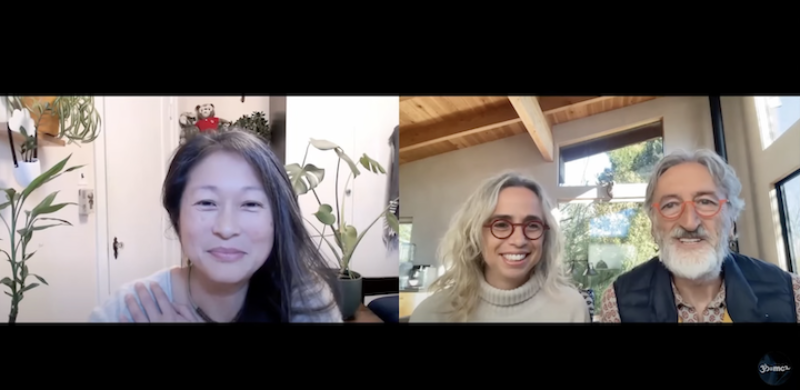
We inherit many things from our families - heirlooms, habits, humour. But what about psychological wounds? In this episode, we discuss epigenetics, intergenerational trauma and how collective memory helps us work through catastrophic loss.
To explore these issues, we spoke to Linda Thai, a former child refugee from Vietnam who grew up in Australia and works as a somatic therapist based in Alaska. Linda is passionate about breaking the cycle of historical and intergenerational trauma and specialises in supporting the adult children of refugees and migrants. Hers is a compelling story of surviving displacement, post-traumatic resilience and transforming the legacy of ancestral grief.
Listen Now →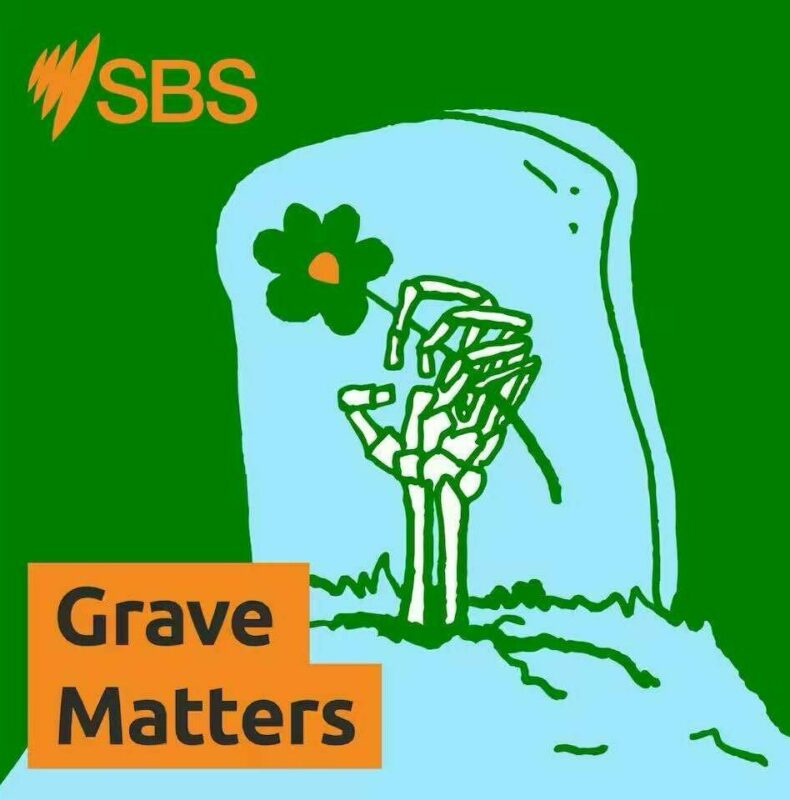
In this podcast with my beloved friend, esteemed colleague and world-changer, Laura Reagan LCSW-C of the Therapy Chat Podcast and the Trauma Chat Podcast, I describe how unrecognized developmental trauma led me to addiction, and how I found my way to healing what was unspoken, and unspeakable.
In our discussion I described Psychodrama Structures, with and without Ketamine, and how I found my way/was led by my inner guidance to explore many bottom up healing methods which all contributed to healing layers and layers of trauma.
Listen Now →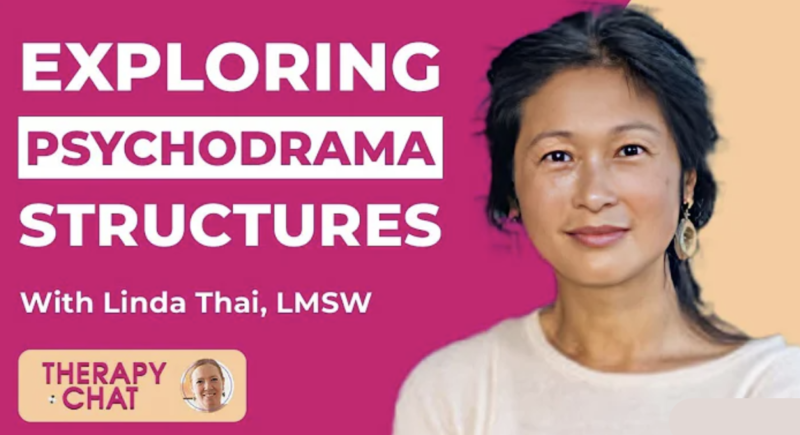
In this community conversation with Jan Winhall MSW RSW FOT, I share about how understanding Sensory Processing Disorder and Sensory Processing differences, and cultivating an innerstanding the eight sensory systems can offer key insights for enhanced self-regulation - and relapse prevention - in early recovery, which can then open doorways for co-regulation, group interventions, and improved outcomes.
Listen Now →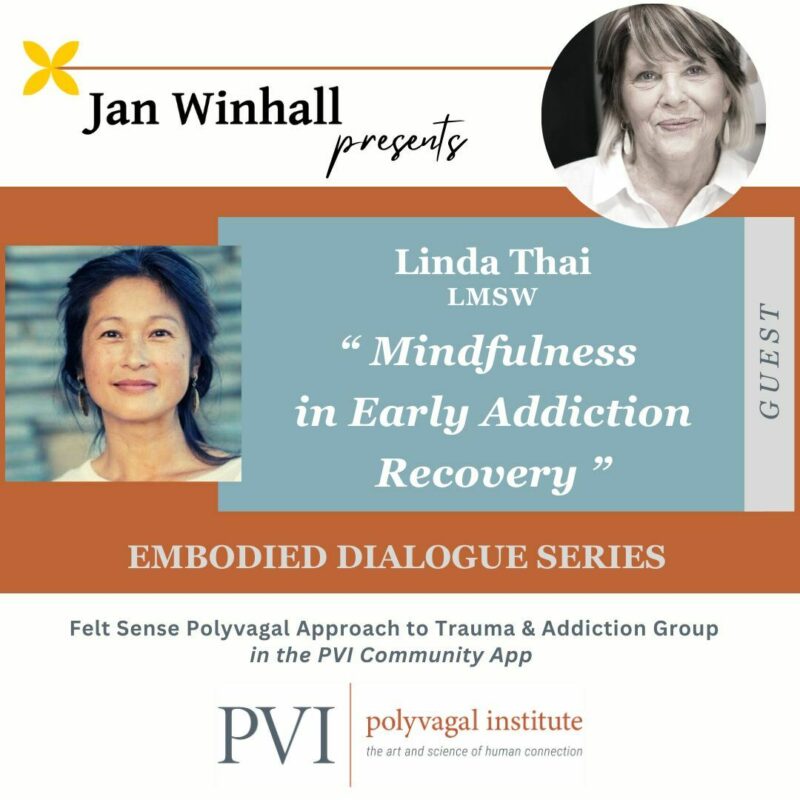
Joyous thankfulness to Mattia Mauree of the AuDHD Flourishing podcast.
It was A Very Fun interview where I cut loose (i.e. fast-talking, animated, neurodivergent info-dumps with some cussing) about ketamine, psychodrama, healing from childhood, structural factors that contribute to healing, nervous systems (of course!), and bits and pieces of my own life that radically contributed to my healing journey (spoiler alert: the game-changer was stable low-cost housing).
Listen Now →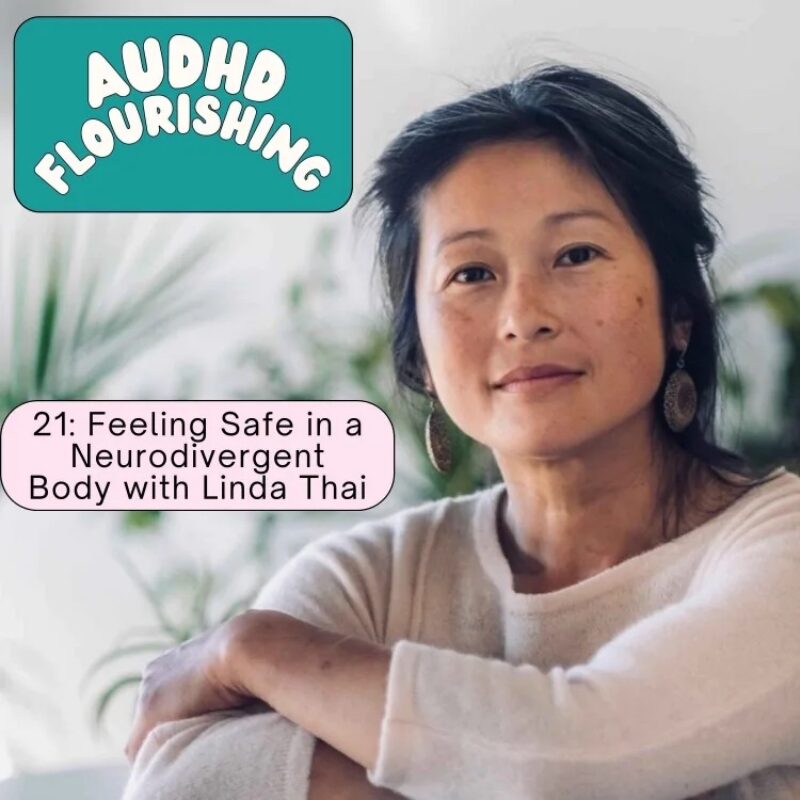
From Genesis The Podcast:
According to Linda Thai, "the role of therapy is to help you to get to know yourself and to experience a sense of dignity." Our conversation dives into therapeutic solutions that are trauma sensitive, trauma informed, and trauma driven as we explore the root causes of trauma, empowerment through somatic strategies and "me-search". Linda also guides us through a brief yet grounding orienting exercise at the end of the conversation that can be practiced anywhere and anytime.
Listen Now →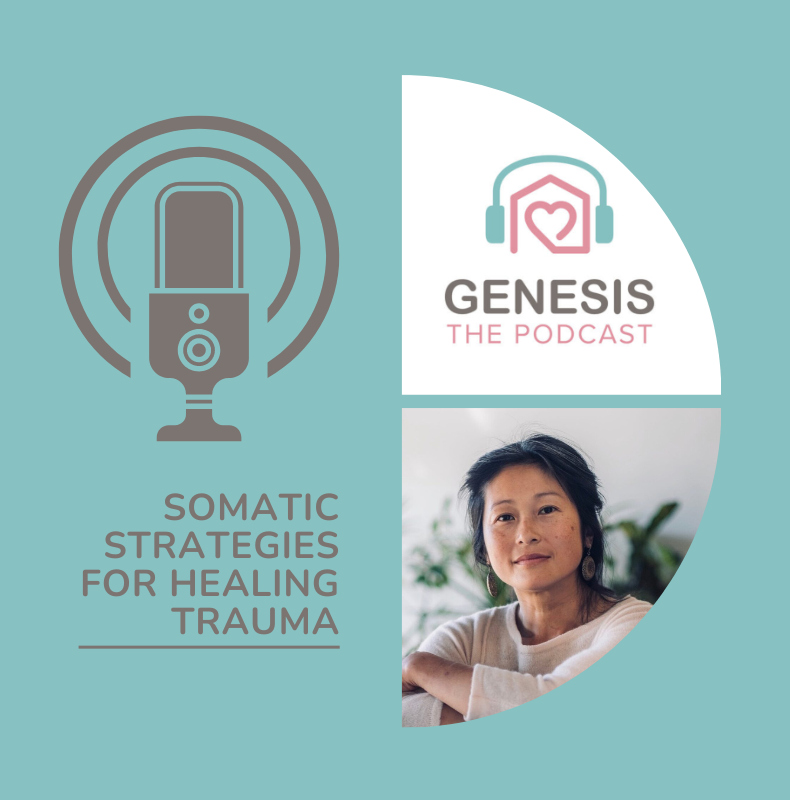
From Therapist Uncensored:
Linda Thai, a Vietnamese Australian trauma therapist living on Native lands in Alaska, shares her journey to self-discovery as she navigates her own identity in the aftermath of her early childhood trauma. In this episode, she shared words of wisdom about grief and developmental trauma as well as intergenerational and ancestral trauma, touching on the immigrant experience and family dynamics. Through various brain and body-based strategies, she reclaims the unresolved ancestral grief and trauma in her lineage and inspires others to incorporate historical awareness, including the impact of colonialism.
Listen Now →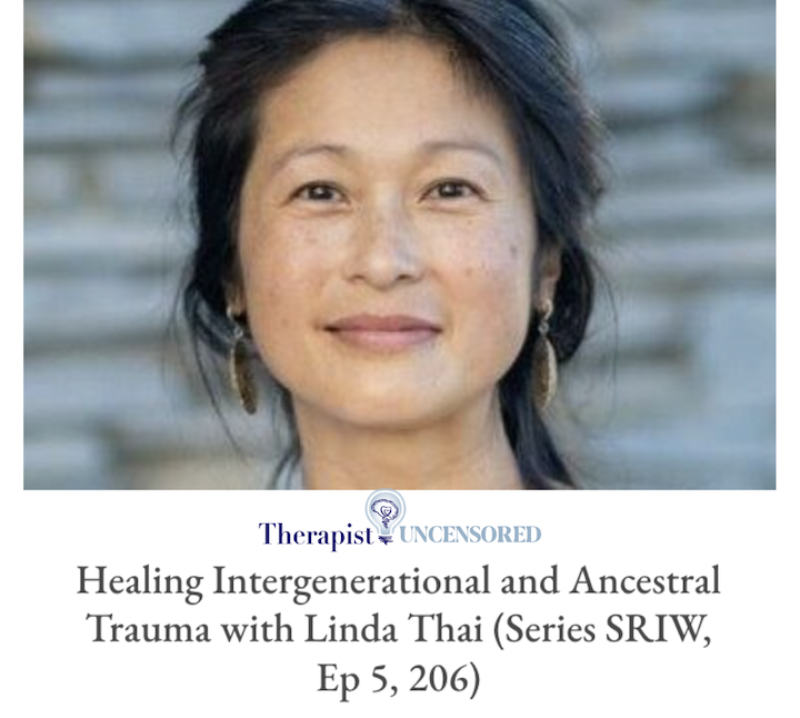
Host Laura Reagan, LCSW-C was honored to speak with Linda Thai, LMSW on this episode of Therapy Chat. Linda joined Laura to do a multi-episode series with Laura focusing on the grief she is currently experiencing following a death in the family. Linda shared words of wisdom about grief and developmental trauma as well as intergenerational/ ancestral trauma, touching on the immigrant experience and family dynamics.
Listen Now →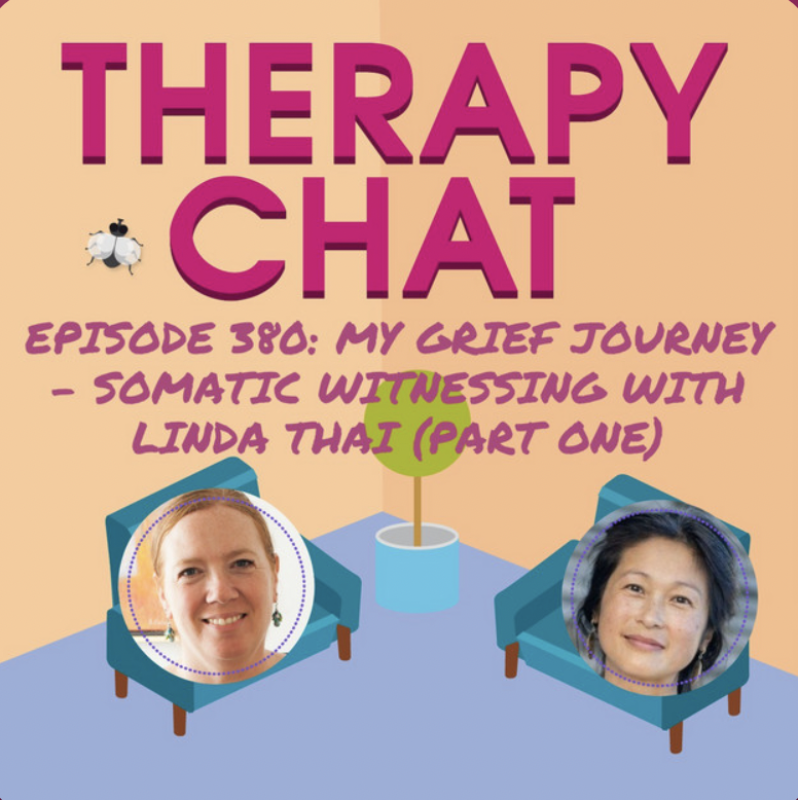
Host Laura Reagan, LCSW-C meets with Linda for a second episode of Therapy Chat to continue the discussion. Listen in to Episode 383 of My Grief Journey: When Attachment Wounds Arise.
Listen Now →
Says Yin J. Li of Asians Do Therapy:
In this conversation, I speak with Linda Thai (she/hers). Linda is a Vietnamese Australian trauma and somatic therapist currently living in Alaska. I was very intrigued by Linda's work. She is writing and researching about the intersections of trauma, healing and adult children of refugees, specifically Vietnamese refugees.
I hope this conversation moves you. And, that it provides you with some understanding and compassion of your experience, of the experience of Vietnamese folks, and of those who have sought and continue to seek refuge.
Listen Now →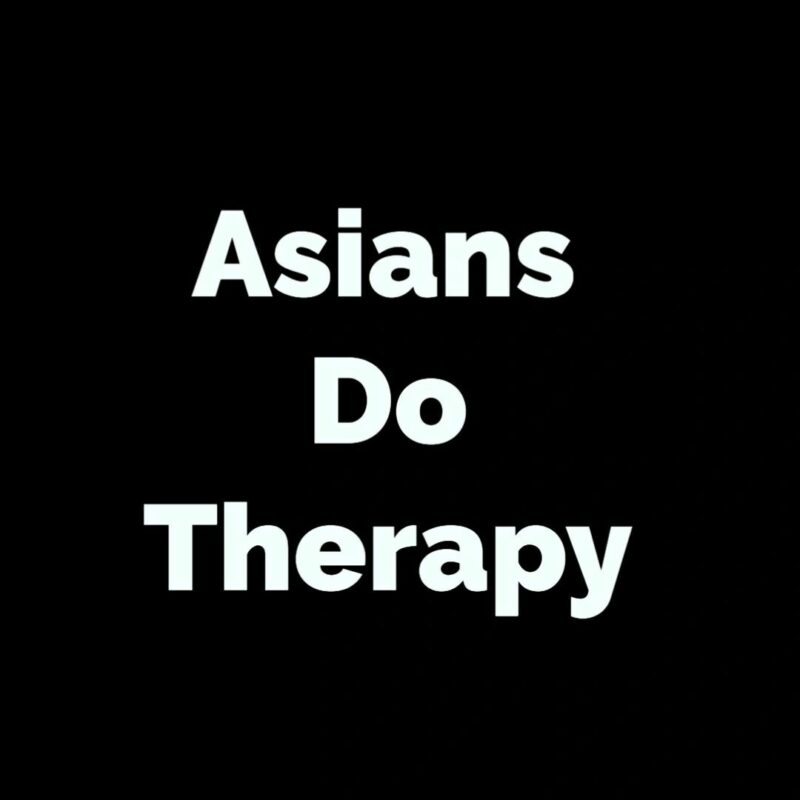
America! The land of opportunity! And also, for so many Mash-Ups, the ambiguous loss of immigration and uprooting a life and a history comes with a complex web of emotions. Today we’re talking to trauma therapist and educator, Linda Thai, about ancestral grief, and how unmetabolized grief, particularly in Mash-Up families, is passed down through generations. We dive into how important understanding historical context is for grief and healing. There are many Mash-Up revelations in this episode!!!! We’re asking: what happens to a family structure if we don’t grieve?
Learn more →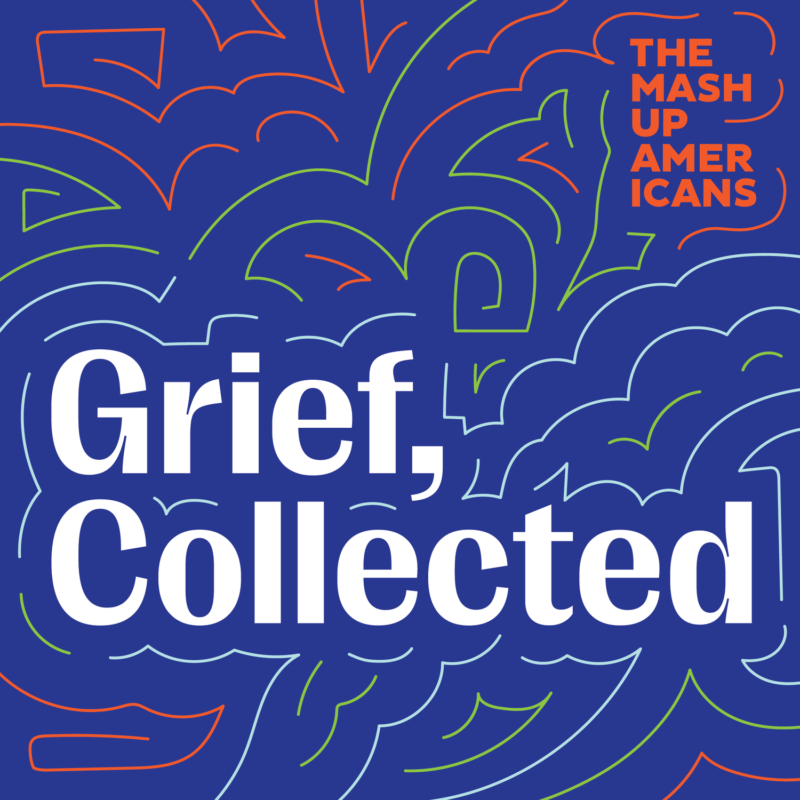
Linda discusses her journey to becoming a therapist with host of the Trauma Therapist podcast, Guy Macpherson.
Listen Now →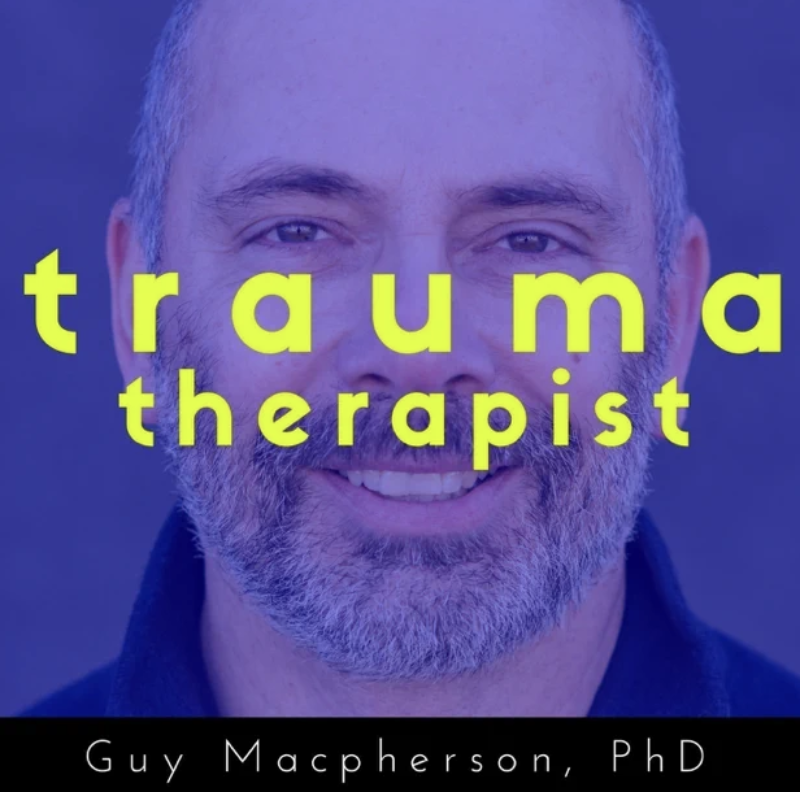
Our Bodies Hold Our Stories
Linda and Karen talk about how the body (and the nervous system) holds implicit or subconscious memories that we may not be aware of. And that by working with and through the body, we can access a deeper truth, that isn't possible when we go through cognitive (intellectual) awareness.
Watch Here →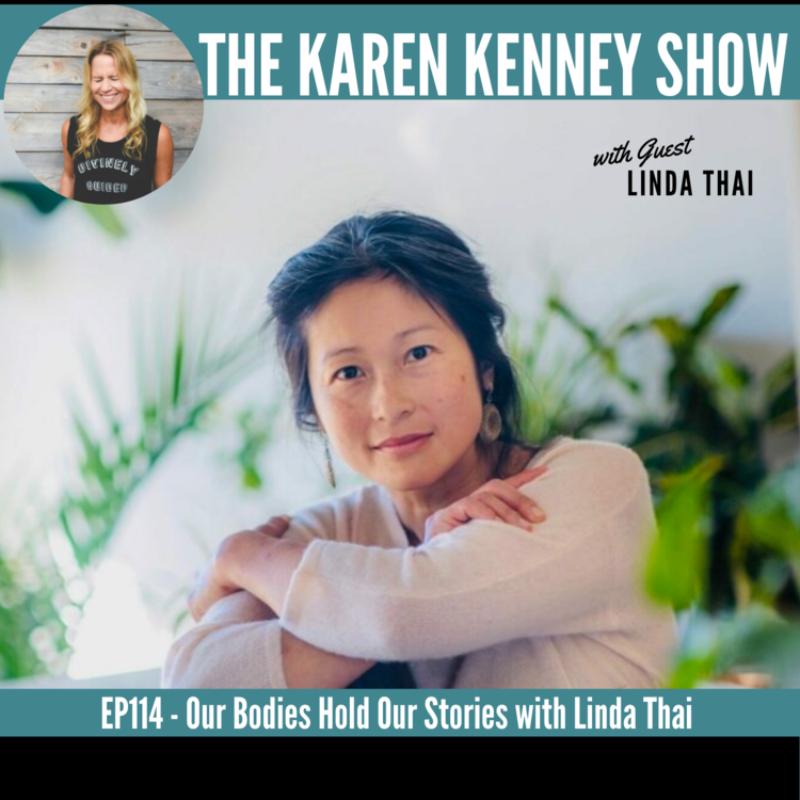
“At some point along the line you had an ancestor who lived through the unthinkable,” Linda Thai said, explaining how her own family’s experiences affected her childhood and young adult years. “And it made an impact in some way upon how they parented their kids. Or didn’t parent their kids. Trauma that has happened in previous generations that has been unresolved, and therefore impacts the way that generation raises the next generation.”
Read Now →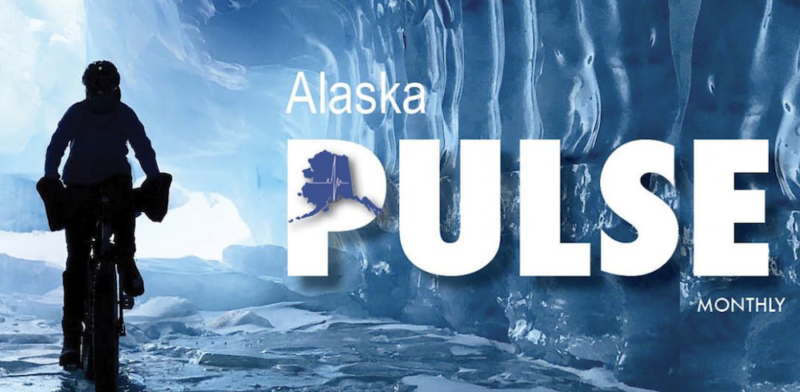
The issue of immigration is again a dominant concern in the United States. Over the decades, the Irish, Eastern Europeans and Chinese were met with hostility and, at times violence, when they sought opportunity or asylum on our shores.
Linda Thai was part of the Vietnamese exodus in the 1970s. She was only two years old when she and her parents boarded an overcrowded boat in the middle of the night to escape persecution and possible death. As you’ll hear, they found a new home in Australia, but the trauma of events still shapes their lives.
Says Linda: I look back on this interview with such nostalgia. This was the first time I told my story for a radio audience. The feedback that I got from my local community impelled me to continue to share my story. Peace is the best pillow to sleep on at night, and not all of us have that luxury.
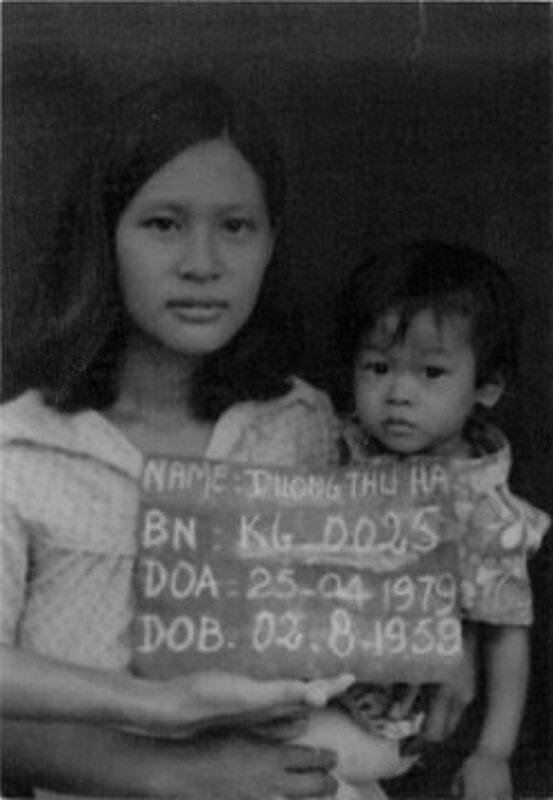
FAIRBANKS — Linda Thai was 2 when her family escaped Vietnam as Boat People in 1979. “My father was on the run from the communists,” she said. “He worked at his aunt’s gas station, so that made his aunt...
Read Now →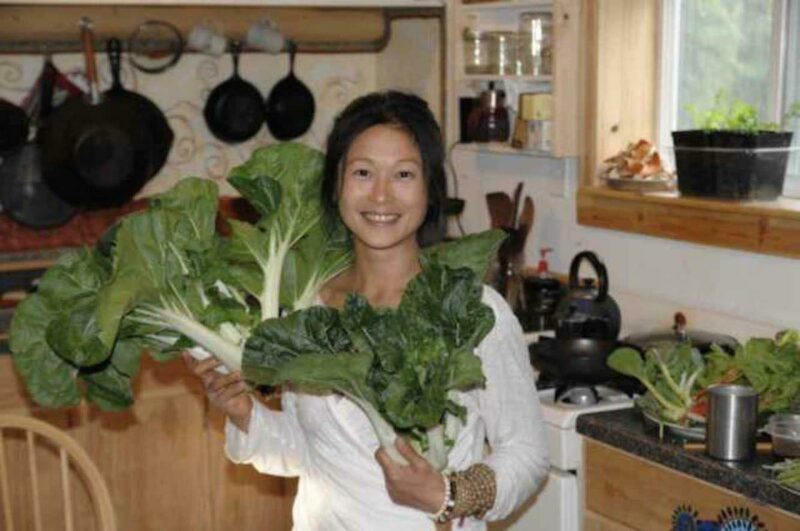

Sign up with your email to receive news and updates.